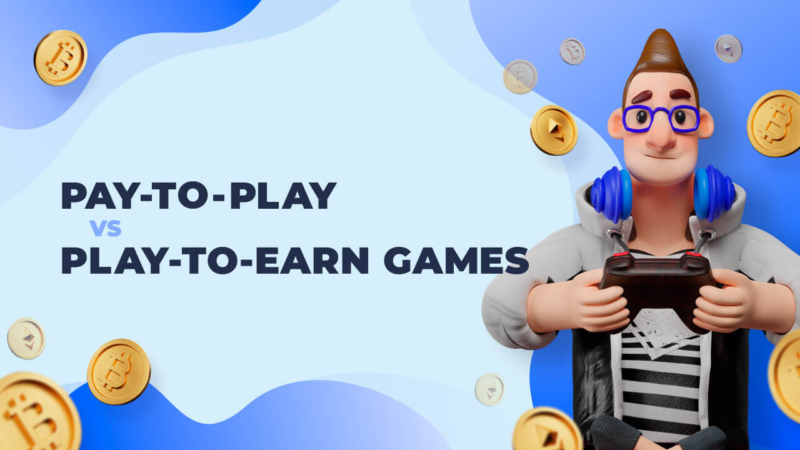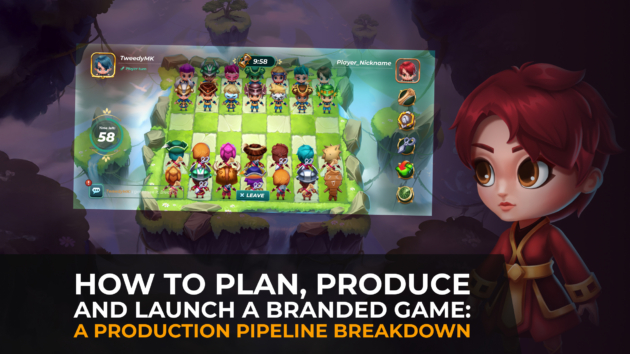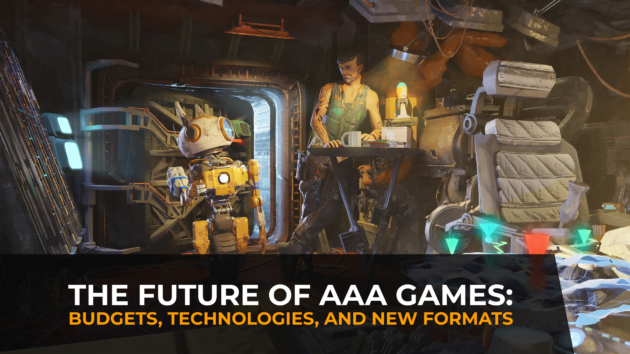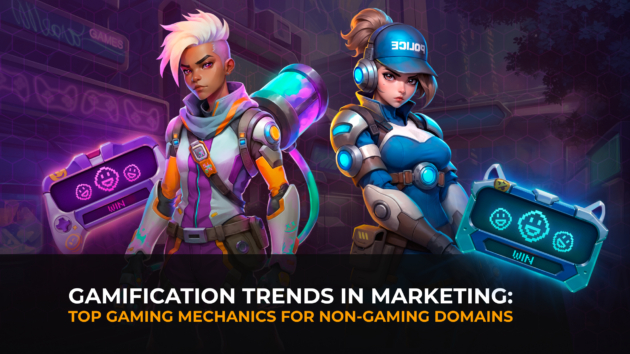Game developers continue surprising players with new titles with engaging mechanics as the years go. Just think about the blast the release of Hogwarts Legacy or God of War: Ragnarok made! Awesome games always leave gamers wanting more, creating an enormous demand in the industry.
Almost 3.09 billion people play video games regularly worldwide. The number is expected to reach 3.32 billion by 2024 and will keep growing. So, what mechanics do popular games use to meet the expectations of such a vast group of people?
World’s well-known and most-liked games usually use pay-to-play or play-to-earn mechanics. When it comes to developing a game, what will your choice be? Stepico experts will gladly share their knowledge about P2P and P2E games in this article to help make up your mind.
What are Pay-To-Play Games?
Pay-to-play (P2P) games are video games that require the player to buy an online service membership along with a gaming console, PC, game discs, or other hardware. P2Ps appeal more to players who prefer playing high-quality games because they usually offer better visuals and audio than free-to-play games. Also, the user might be motivated to purchase extras like virtual products and in-game money.

Grand Theft Auto V, The Last of Us, FIFA 17, and God of War Ragnarok are famous pay-to-play games.
What are Play-To-Earn Games?
Play-to-earn (P2E) is the name of the new gaming model built on Blockchain technology. P2E games (or just crypto games) combine NFTs and cryptocurrencies into the gameplay. They offer players the opportunity to earn rewards or crypto while playing.
In play-to-earn games, users are incentivized to spend more time playing and completing objectives to earn more rewards. This can create a more engaging and rewarding experience for players, as they feel rewarded for their time and effort.
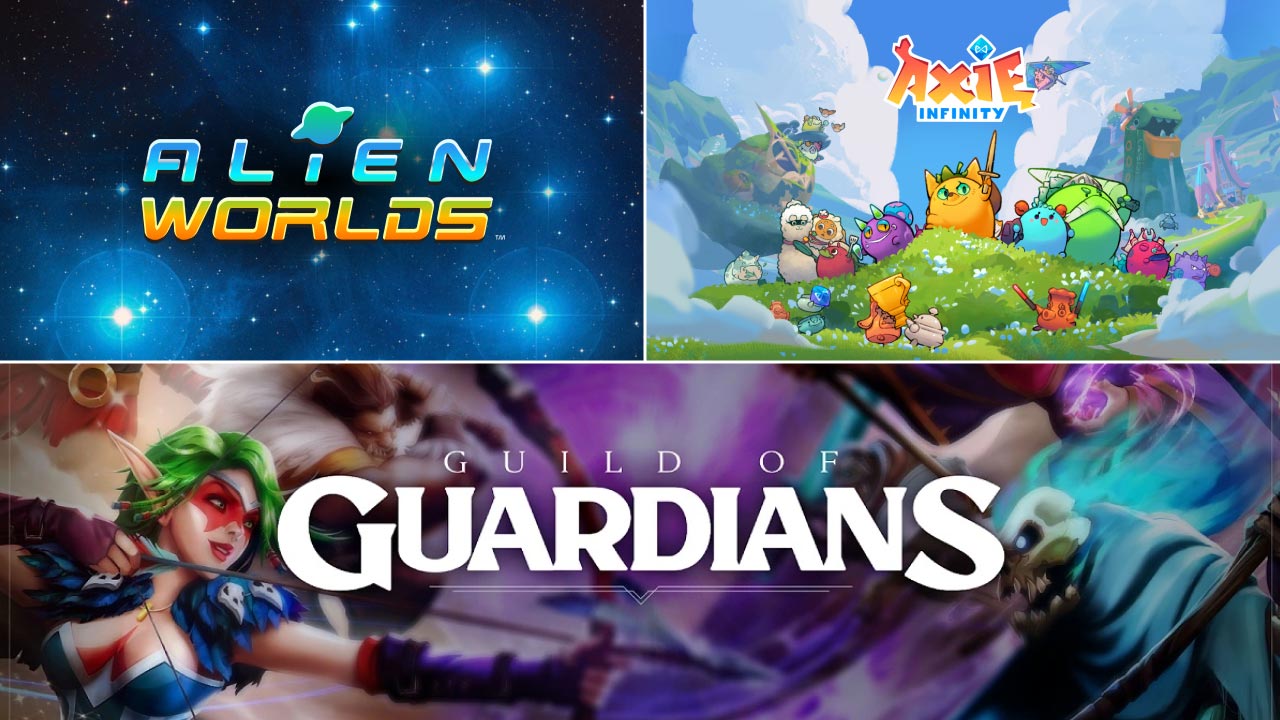
Guild of Guardians, Alien Worlds, and Axie Infinity are popular P2E games in 2023.
How P2P and P2E Games Influence the Game Industry
The arrival of pay-to-play games some time ago has created quite a boom. More and more people have been attracted to games ever since both those who want to earn money from gaming and those willing to pay for a premium experience.
The recent rise of P2E games has increased accessibility to gaming. For instance, many play-to-earn games offer free play or just a little initial investment. Because of this, they appeal to people who would not have the resources or access to buy traditional consoles and games.
Those are the advantages for players, but what about game developers? P2P and P2E games introduced new opportunities to monetize their games. Game developers can provide digital goods or in-game reward systems that can be transferred to the real world in addition to selling the game itself. By regularly releasing new content and updates, game creators can increase revenue and maintain player interest.
Pay-To-Play and Play-To-Earn Games in Close Comparison
There are some significant differences between pay-to-play and play-to-earn games that should be taken into account. We’ve assembled the six main ones:
Payment Model
Pay-to-play games require players to pay upfront to access the game. Play-to-earn games are usually free-to-play and allow users to earn rewards or cryptocurrency through gameplay.
Player Motivation
In P2P games, players are motivated to progress through the game and complete its objectives, often buying extra help on the go. P2E games stimulate gamers to acquire various assets that can be converted to real-world value.
Monetization
Pay-to-play games typically generate income through the sale of in-game items or DLC, while play-to-earn games can monetize through transaction fees on trades or by selling the game’s cryptocurrency.
Player Base
P2P games attract players willing to pay for a premium gaming experience. Meanwhile, P2E games appeal to the ones who are interested in earning rewards with real-world value.
Gameplay Mechanics
Play-to-earn games often have unique gameplay mechanics designed to support the earning and trading of prizes. In contrast, pay-to-play games may focus more on traditional game mechanics such as combat, puzzle-solving, or exploration.
Community Building
Play-to-earn games often foster a strong community among players, who may share strategies for earning rewards or trade cryptocurrency with each other. Pay-to-play games also have communities but are less focused on the game’s monetization model.
As play-to-earn is relatively new game mechanics compared to pay-to-play, we’d like to explore this topic a bit more.
Why are Play-to-Earn Games Popular?
P2E games offer perks for both players and game developers. Let’s start with gamers. P2E games provide an opportunity to earn real money while playing without worrying about data breaches, as crypto games use secure asset ownership in the form of non-fungible tokens (NFTs) with unique IDs. Moreover, play-to-earn gamers create vast communities that share valuable information, e.g., winning strategies.
For game developers, creating play-to-earn games opens up enormous blockchain potential for projects. Also, as the P2E ecosystem expands, developers who build these games continually increase their revenue. What’s also worth mentioning is trend-setting. The play-to-earn games open the gaming industry to fresh trends, expanding the potential for future developments. These games expose us to an entirely new extent of player possibilities beyond merely playing.
The crypto game Alien Worlds alone had 690,380 users in November 2022, and the number has kept increasing ever since. Other P2E games have up to 492,000 active players. The popularity of play-to-earn games is projected to grow in 2023 and in the years ahead.
Why Should You Try P2E Game Development?
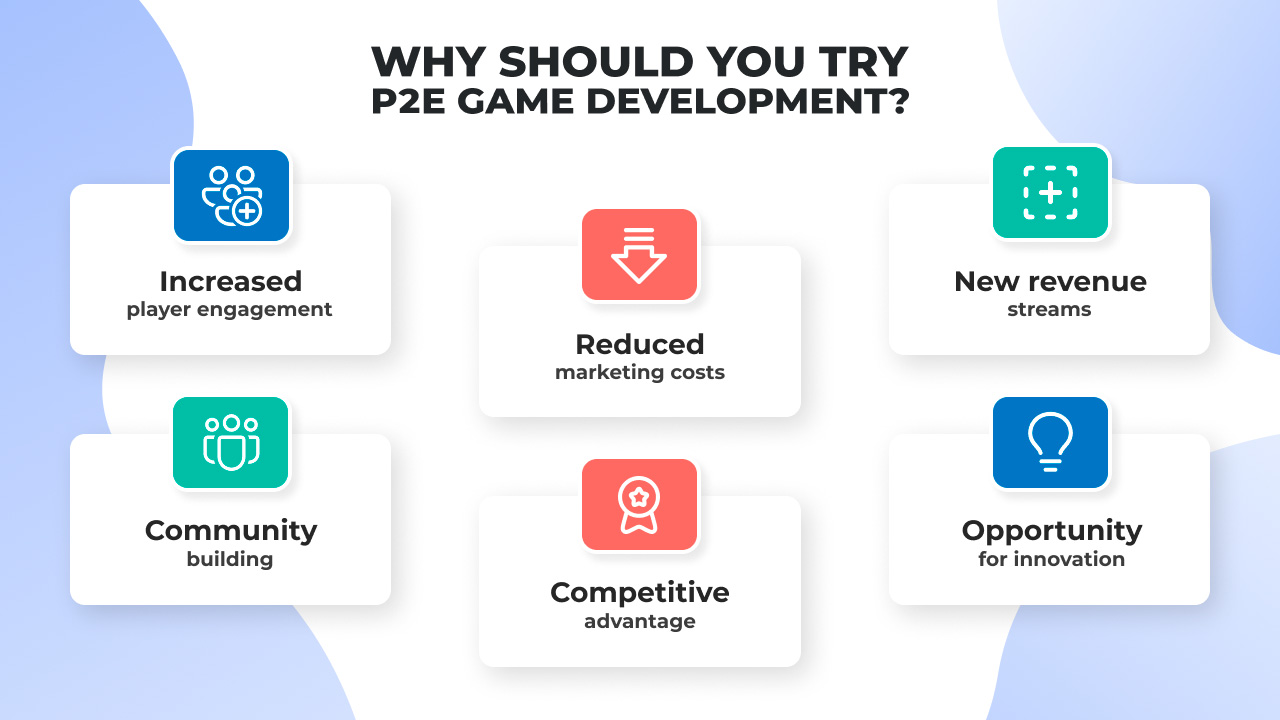
The development of play-to-earn games can offer valuable benefits:
- Increased player engagement. Play-to-earn games incentivize players to spend more time and effort in the game to earn rewards. This increased engagement can lead to higher retention rates and more recurring gameplay sessions.
- Reduced marketing costs. P2E games can generate a lot of buzz and word-of-mouth advertising, reducing the need for expensive marketing campaigns.
- New revenue streams. Play-to-earn games can generate income through the sale of in-game items and through the collection of fees on transactions that involve the game’s cryptocurrency. This can create new revenue streams for the company.
- Community building. P2E games can foster a strong community among players, leading to greater player loyalty and advocacy.
- Competitive advantage. Play-to-earn games are still a relatively new concept. Companies that embrace this model early on may have a competitive advantage over those that stick to more traditional game development models.
- Opportunity for innovation. P2E games require unique game mechanics and systems to support the earning and trading of rewards, which can lead to new and innovative game designs. This can help the company stand out in a crowded market and attract players looking for something new and exciting.
If you associate play-to-earn games with slots and casinos only, you haven’t seen the full potential of blockchain. Crypto games can be much more than that! So, what game types can be P2E?
- Adventure
- Simulation
- RTS & MMORTS
- Action
- RPG
- FPS & TPS
For example, Guild of Guardians is an RPG play-to-earn game we developed when working with Immutable. It is a fantasy action mobile game where players assemble their own group of “Guardians” and compete for legendary, exchangeable treasures. The game has more than 230,000 users on the waiting list, and the number of players is expected to increase after the game’s release.
Concluding Thoughts
Both pay-to-play and play-to-earn games are in demand today. The decision between P2P and P2E directions ultimately rests with you. Take into account the kind of reward system that functions best for your game and how you’d like to profit when choosing the game type and setting out requirements.
Either way, we’re here for you! Stepico is a mobile game development company with 9+ years of experience creating high-quality P2P and P2E games of various genres. Using cutting-edge technologies, our professionals have successfully developed blockchain gaming solutions for the world’s leading game publishers like Immutable and others.
Our expert development and design teams are dedicated to creating a fun and safe playing environment for your users. Have an idea? Drop us a quick message to start building your game right away!
